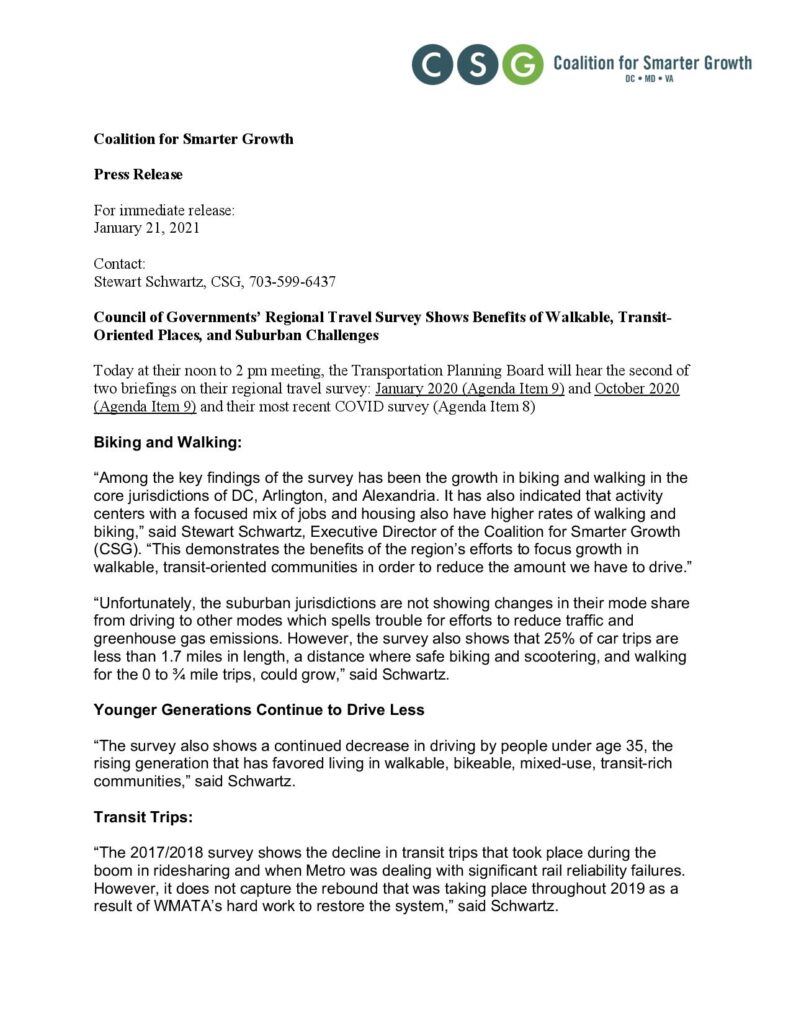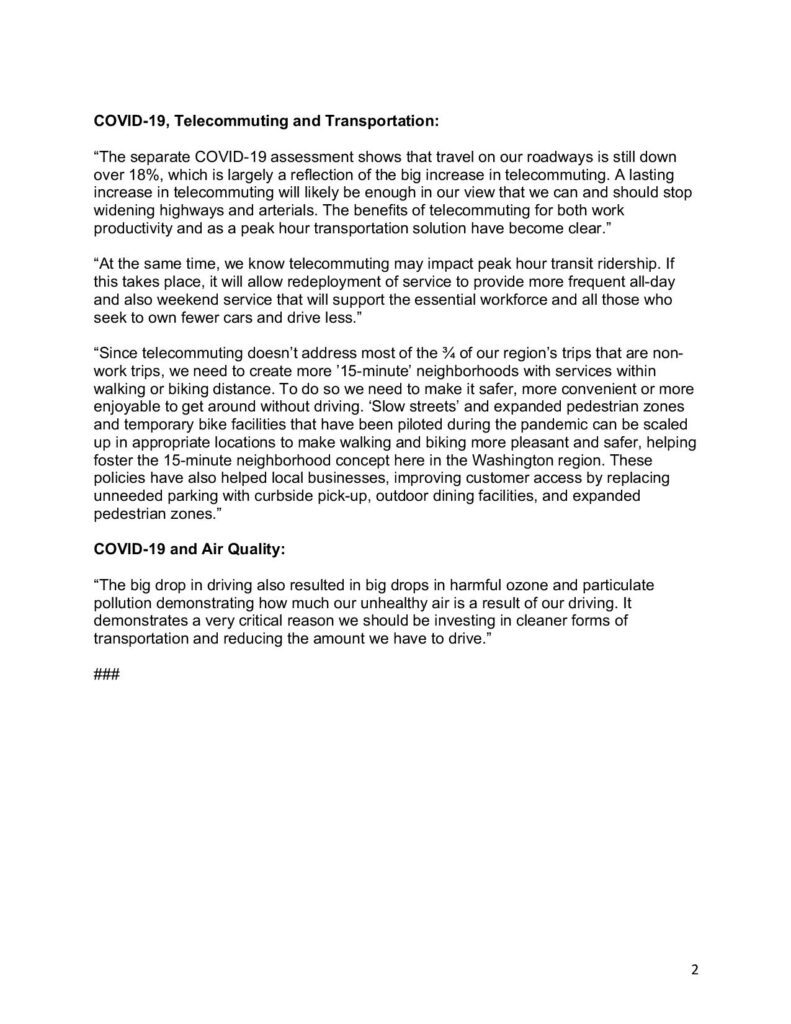PRESS RELEASE
For Immediate Release:
September 23, 2021
Contact:
Stewart Schwartz, Executive Director, 703-599-6437
Cheryl Cort, Policy Director, 202-251-7516
CSG Applauds COG’s Initiative for Equity, Smart Growth, Climate
COG Proposal to Focus Development around DC Region’s High-Capacity Transit Stations Vote Scheduled for October 13
Today, the Washington Post reported that the Metropolitan Washington Council of Governments, composed of the region’s local elected officials, some state legislators, and state and federal representatives, are on the verge of agreeing to focus development around the DC region’s high-capacity transit stations. These include Metrorail, Purple Line, VRE and MARC commuter rail, and bus rapid transit stations. At the same time, COG intends to prioritize transportation, housing, trails, and other investments around stations within equity emphasis areas, which have high concentrations of lower income residents and high numbers of Black, Latino, or Asian residents.
COG also announced preliminary findings that show a combination of smart growth, electric vehicles, and pricing tools will be necessary for the region to slash its greenhouse gas emissions from transportation. Focused growth in transit communities is an essential part of this strategy.
“We applaud COG’s proposal which is to be voted on at their October 13 meeting,” said Stewart Schwartz, Executive Director of the Coalition for Smarter Growth. “COG’s action is the natural outgrowth of the work and long-time advocacy by our organization and COG’s own studies and vision statements over the past two decades. But now this agreement must be followed by action.”
Founders of the Coalition for Smarter Growth first proposed a “network of livable communities” centered on the region’s transit hubs in reports released in 1992 and 1996, and in CSG’s 2002 Blueprint for a Better Region. It was a vision largely endorsed by the Urban Land Institute’s “Reality Check” conference in 2005, COG’s Region Forward vision of 2010, COG’s follow-on studies and plans, and by many local elected officials who have been approving transit-oriented developments.
“Anyone frustrated by sitting in traffic, or concerned about the growing evidence of climate change including frequent floods in the DC region, should support this COG initiative. Mixed use, mixed-income, walkable, transit-centered communities mean many more people will be able to drive less and reduce the air and climate pollution they generate,” said Schwartz.
“The region’s east-west economic and racial divide, first highlighted in the 1999 Brookings report ‘A Region Divided,” has persisted for too long. Accelerating investment in transit communities in Prince George’s, eastern Montgomery, and eastern Fairfax and Prince William would shorten commutes, reduce vehicle miles traveled, and improve access to jobs and opportunity,” said Cheryl Cort, Policy Director for CSG. “In fact, building out transit-oriented communities on the east side of our region and investing in affordable housing near transit throughout our region are key transportation and climate solutions.”
“But there was also sobering news from the meeting of COG’s Transportation Planning Board (TPB) yesterday,” said Schwartz. “Early findings from their climate scenario study confirm that neither the rate of adoption of electric vehicles, nor land use changes, will be enough to slash our greenhouse gas emissions sufficiently by 2030. We’ll need to move on a number of fronts – much faster adoption of electric vehicles, much stronger action to focus growth and reduce sprawl in order to reduce vehicle trips and vehicle miles traveled, increase telecommuting, and use pricing (congestion pricing or vehicle miles traveled fees, and parking pricing), if our region is going to reduce greenhouse gas emissions enough to do our part to address the climate emergency.”
“Electric vehicles alone can’t save us. We must stop sprawling outward where people have no option but driving, and create inclusive, walkable, transit-centered communities, in order to slash our greenhouse gas emissions. In the process, we will increase access to opportunity and address regional inequity, while improving quality of life for everyone,” concluded Cort.
###



